People often have a love-hate relationship with their in-laws. Some are absolute gems, while others… well, not so much. But one thing’s usually true: most in-laws adore their grandkids. That’s why it can get messy when babysitting turns from a favor into a full-blown negotiation.
In this case, one dad felt totally blindsided when his mother-in-law suddenly asked for $500 to watch their son, just days before he and his wife were set to leave on a kid-free vacation. Calling it “manipulation,” he quickly made alternate plans with his own parents instead. Is this just a clash of expectations or did someone cross a line?
Grandparents are often the go-to choice for babysitting when parents need to travel

Image credits: unsplash (not the actual photo)
One man shared his frustration after his mother-in-law asked to be paid for five days of babysitting their son
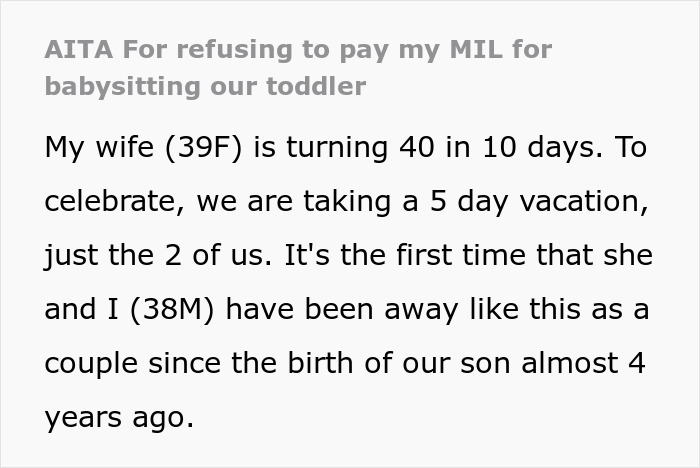




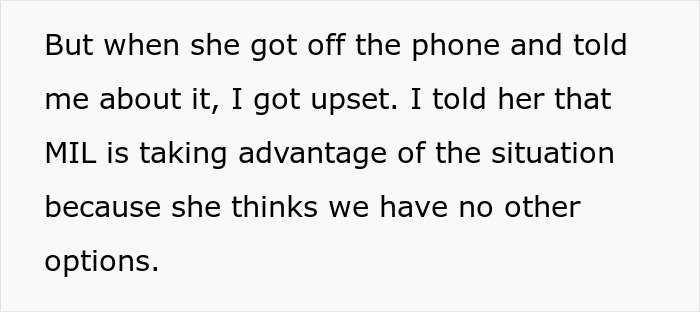


Image credits: unsplash (not the actual photo)


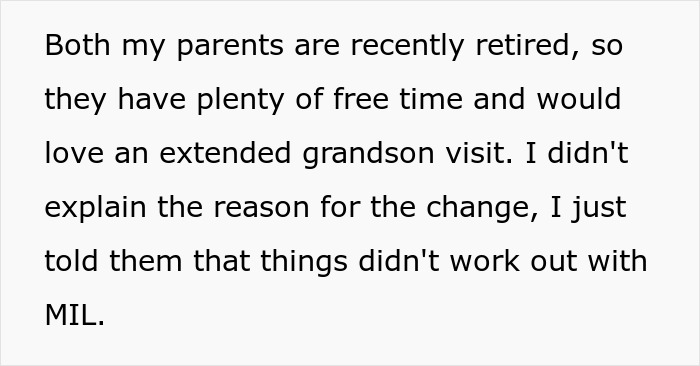
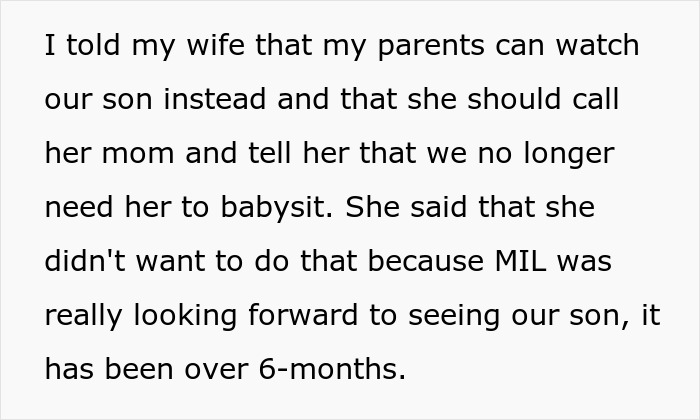




Image credits: notpayingaita
He explained his perspective, calling the request unfair and feeling it turned a family favor into a transaction

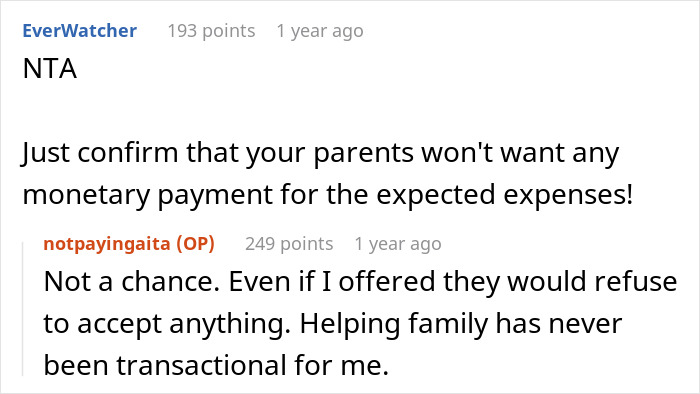

Couples need dedicated one-on-one time after having a child, to reconnect and nurture their relationship
Becoming parents is a beautiful milestone, but let’s be honest, it comes with a trade-off. Sleep becomes a luxury, me-time feels like a distant memory, and spending quality time with your partner? That becomes a strategic mission. Amidst diaper changes, feedings, and school runs, couples often find themselves drifting apart without even realizing it.
It’s not that the love fades, it’s just buried under layers of responsibility and fatigue. And that’s exactly why carving out moments together becomes essential. Even something as simple as a coffee break or movie night can work wonders. But here’s the catch: you need a little help to make it happen.
Many turn to babysitters or nannies, but often the first call is to someone closer: family. In many Indian households, support from elders is almost woven into the family fabric. To understand this better, we spoke with Reema Kothari, co-founder of PKIN Luxury Clothing in Jaipur. A globally acclaimed boutique owner and a mother of two, Reema runs her business alongside her husband. “Our family has been our strength,” she says with pride. “They’ve been our cushion during the most hectic phases.” Her story is a testament to the power of familial bonds in balancing entrepreneurship and parenthood.
Reema shares, “When we were building our brand, my daughter was still little. We’d often be working late into the night. My in-laws would be the ones bathing her, feeding her, tucking her in.” It wasn’t just help—it was love in action. That kind of emotional scaffolding is hard to put a price on. For couples trying to juggle career and parenting, that backing can be the difference between burnout and survival. But it didn’t come without respect or communication. “It’s not about dumping responsibility,” Reema adds. “It’s about sharing it, gratefully and mindfully.”
“In India, it’s common for parents to live with us, but that doesn’t mean they’re obligated to drop everything for us,” Reema points out. This line speaks volumes. Cultural expectations sometimes blur the lines between support and over-reliance. While grandparents often want to help, expecting them to take over completely isn’t fair. They have their own lives, routines, and needs. “Help should feel voluntary, not demanded,” she says. The idea is to preserve harmony, not create silent resentment under the guise of family duty.
Expecting grandparents to drop everything and take on full-time babysitting duties is unfair and inconsiderate
Communication, Reema emphasizes, is key. “Let them know your plans, involve them in decisions, and most importantly, ask—don’t expect.” It’s about building a collaborative dynamic, not a one-sided arrangement. She insists that being clear and open goes a long way in avoiding friction. “If they’re not comfortable with certain timings or tasks, respect that.” After all, they’ve already raised a generation—it’s not fair to assume they’ll take full charge of the next without pause.
She also advises parents to be considerate of grandparents’ time and emotional energy. “They may not say it, but long hours with toddlers can be exhausting, mentally and physically.” Aging bodies need rest, and their lives don’t revolve solely around grandkids. “Give them space. Don’t expect 24/7 support, and don’t guilt them into it,” she says gently. Reema believes that showing appreciation instead of entitlement keeps the relationship warm and loving.
“Don’t take advantage,” Reema states firmly. Just because family is around doesn’t mean boundaries can be ignored. She recalls how, early on, she and her husband created a simple calendar, marking days when they’d need help and days when they’d manage everything themselves. “It made our in-laws feel respected and gave us clarity,” she adds. The mutual understanding it fostered brought peace to both parenting and family dynamics.
Lastly, she touches on an important distinction. “There’s a difference between occasional bonding time and full-on babysitting duty.” While it’s lovely for grandparents to spend time with their grandkids, turning that into a recurring obligation can be unfair. “They’re family, not full-time caregivers,” she explains. In the end, it’s all about balance, appreciating their help without exploiting it, and remembering that love, not expectation, should drive every interaction.
In this particular case, it really feels like a simple conversation early on could have prevented all the chaos. Expectations, especially with family, can be tricky, but they get even messier when people assume instead of discuss. The author clearly felt blindsided, while the MIL might’ve felt entitled to some compensation for her time. And honestly, both perspectives hold some weight.
What would you have done in this situation? Would you have paid the $500 for peace, or stood your ground like the author did? And do you think the MIL was being opportunistic or just honest about her needs a little too late? Let us know your take.
Many online criticized the MIL for bringing up payment so close to the couple’s planned trip













Others argued the author was being unreasonable for refusing to compensate her time and effort

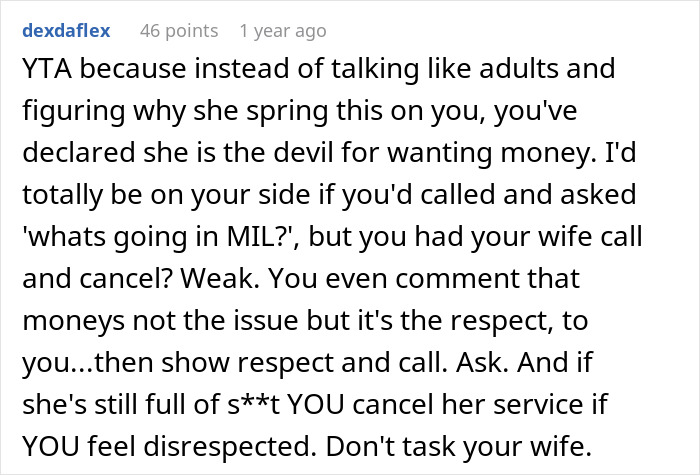


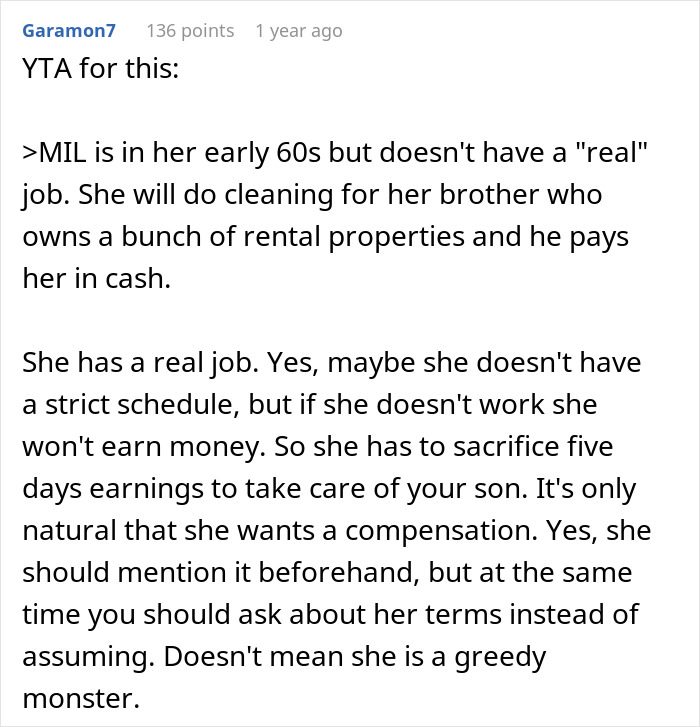
Several people agreed that both sides could’ve handled the situation better, suggesting clearer communication upfront

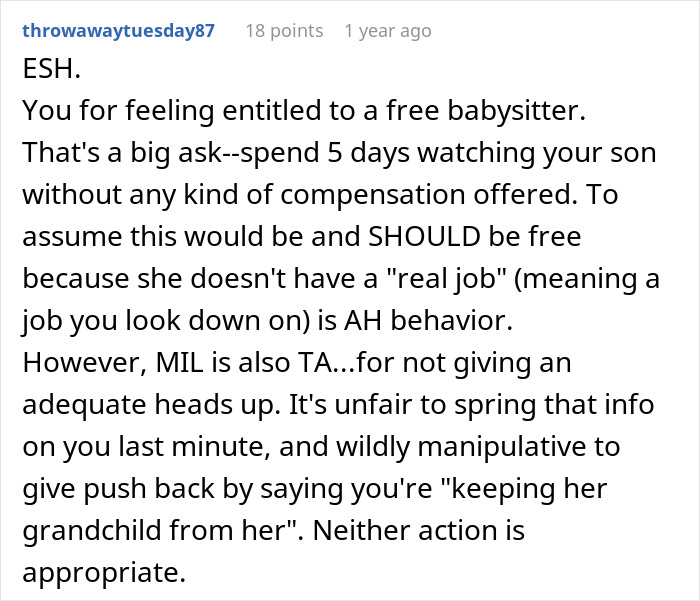
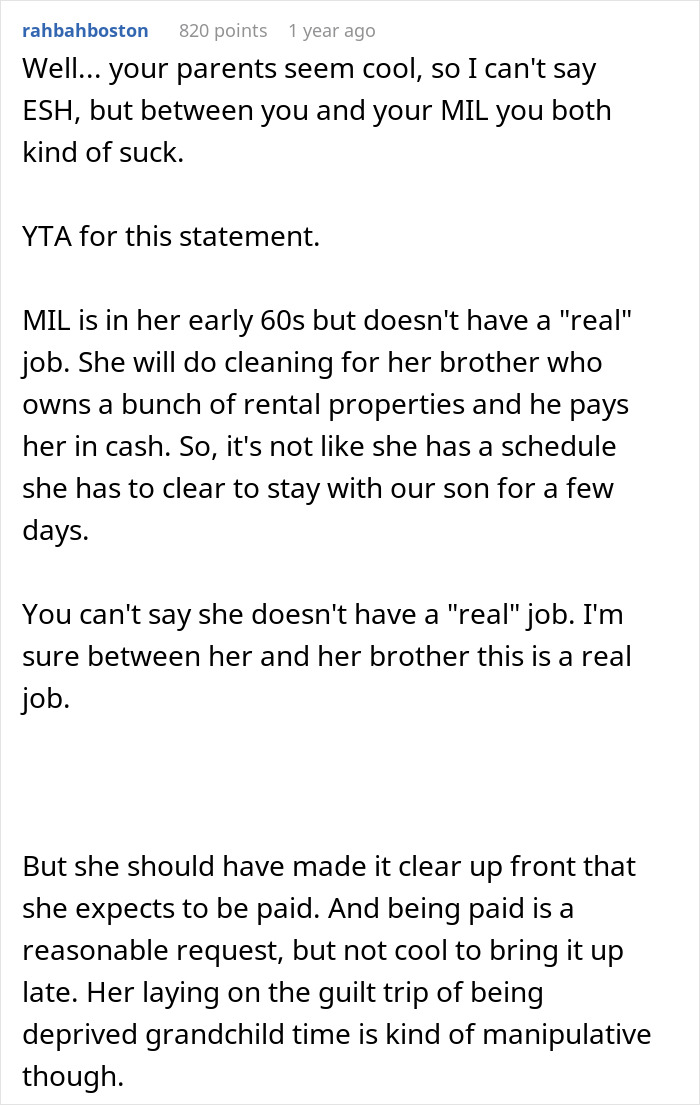
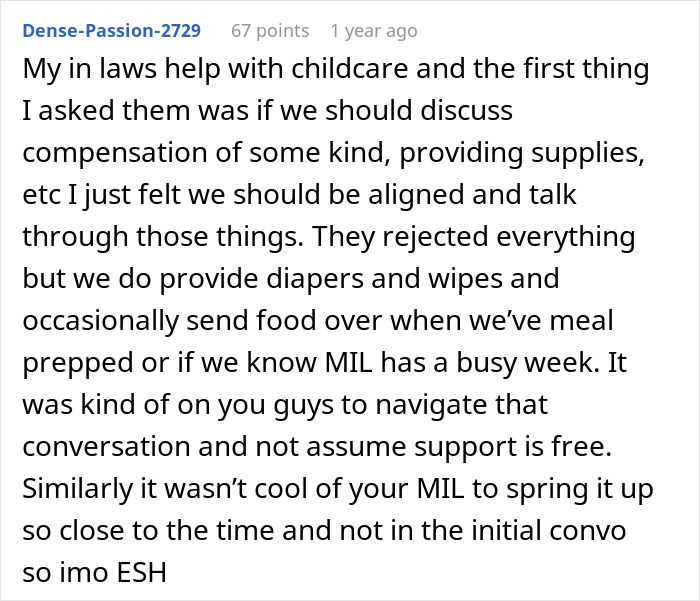
from Bored Panda https://ift.tt/dGFz9J5
via IFTTT source site : boredpanda